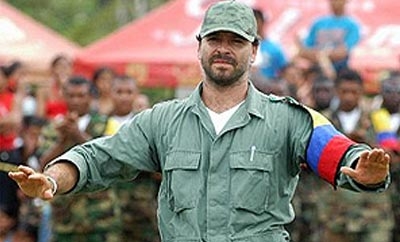Paramilitary commanders from the demobilized AUC can now begin applying for parole, highlighting what many see as a weaknesses in that process, and what many others say must be different with regards to the current government negotiation with Colombia’s guerrilla groups.
At least 65 former members of the United Self-Defense Forces of Colombia (AUC) are now eligible to seek parole, among them feared warlords such as Freddy Rendon Herrera, alias “El Aleman,” and Edward Cobos Tellez, alias “Diego Vecino,” reported El Tiempo.
Under the terms of the so-called Justice and Peace law, the paramilitaries are eligible for release because they have served eight years in prison for crimes they admitted to during the process. However, they must also have cooperated with the authorities, not committed other crimes nor hidden illegal assets.
An anonymous Ministry of Justice source cited by El Tiempo said the Colombian government wants to send the message that it is committed to peace and that it will honor its agreements.
InSight Crime Analysis
The demobilization of the AUC and the Justice and Peace law came under heavy criticism, much of which was directed at the lenient eight-year prison terms handed down to the paramilitaries. Incredibly, while over 31,000 paramilitaries demobilized in the peace process, only seven have been convicted under the Justice and Peace law and only three of those sentences have been carried out. So even if these paramilitaries committed horrific crimes, by law, they cannot be held more than eight years in prison.
The process was also attacked for the way paramilitaries were able to exploit it to retain wealth and influence, and for the inefficiency in its implementation. The haphazard process led directly to the rise of the neo-paramilitary drug trafficking groups, often called BACRIM, that plague Colombia today.
The government is getting another chance to do this right as it negotiates with left-wing guerrillas in Cuba, but finding the right balance for “transitional justice” is always difficult. However, if the government’s current talks with Colombia’s guerrilla groups prove successful, it should siphon only the pieces of the paramilitary process that worked.

